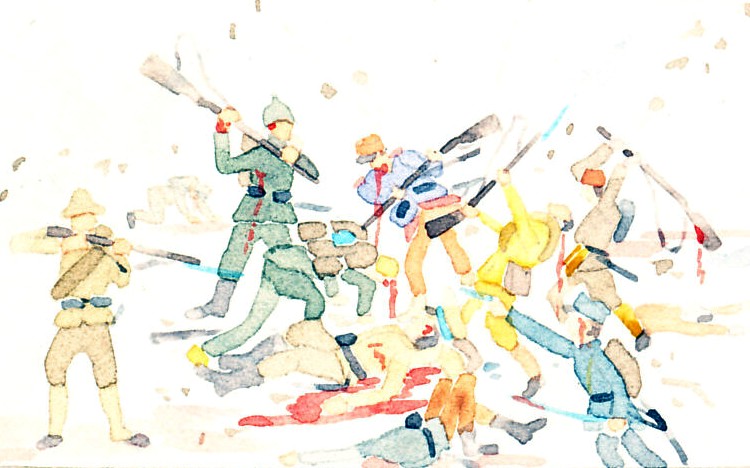To the left, caricatures of a fallen King Albert of Belgium, Tsar Nicholas of Russia, President Poincare of France, generic (?) caricatures of an English man and a Japanese soldier, Kings Peter of Serbia, and Nikola of Montenegro engaging in a tug of war, the rope being held on the right by a German (in gray) and an Austro-Hungarian soldier. Between the teams and behind the rope stands the diminutive caped figure of King Victor Emmanuel of Italy, all hat, mustache, and chin.

